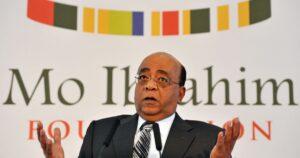- The 2022 Ibrahim Index of African Governance (IIAG) by the Mo Ibrahim Foundation has ranked Kenya 13th for Overall Governance across Africa
- The East African nation’s overall governance score has improved over the last decade (2012-2021), but the pace of improvement has slowed over the most recent five years (2017-2021)
- Kenya has deteriorated in security and the rule of law, driven by a decline in the sub-categories of security & and safety, accountability & transparency
- African Governance reported that African governance has flatlined since 2019 because of factors including disruptions caused by a combination of the COVID-19 pandemic and increased insecurity
The 2022 Ibrahim Index of African Governance (IIAG) by the Mo Ibrahim Foundation has ranked Kenya 13th for Overall Governance across Africa.
According to the index, the East African nation’s overall governance score has improved over the last decade (2012-2021), but the pace of improvement has slowed over the most recent five years (2017-2021).
As per the report, Kenya has improved in three out of four categories since 2012. These are; participation, rights and inclusion, foundations for economic opportunity and human development.
However, Kenya has deteriorated in security and the rule of law, driven by a decline in the sub-categories of security & safety and accountability & transparency.
The index noted Kenya has improved in 11 of the 16 sub-categories since 2012. It has also improved in all sub-categories of the Human Development category.
However, the categories to have seen the most sub-categories deteriorate are Security & Rule of Law and Participation, Rights & Inclusion.
Overall, Kenya scores above the continental average for 15 sub-categories and is among the top ten for three of the 16 sub-categories in 2021.
Mauritius leads Africa
Overall, the 2022 Ibrahim Index of African Governance (IIAG) by the Mo Ibrahim Foundation has ranked Mauritius top on the Overall Governance across Africa. Seychelles, Tunisia and Cape Verde follow the Island nation in second, third and fourth place.
Botswana, South Africa, Ghana and Namibia take fifth, sixth, seventh and eighth place. The countries are followed by Senegal, Morocco, Sao Tome and Principe, Rwanda and then Kenya.
Read More :- What makes companies “un-investible”: Analyzing the Environmental, Social and Governance issues in East Africa
Governance in Africa
At a continental level, the Mo Ibrahim Index of African Governance reported that African governance has flatlined since 2019. This is because of several factors, including disruptions caused by a combination of the COVID-19 pandemic, increased insecurity, and widespread democratic backsliding, posing a severe threat to several years of progress on the continent.
Mo Ibrahim, the Founder and Chair of the Mo Ibrahim Foundation, said unless governments quickly address the concerning trend, the years of progress that have been witnessed could be lost, and Africa would be unable to reach in due time the SDGs or Agenda 2063.

“Our continent is uniquely exposed to the converging impacts of climate change, more recently Covid-19, and now the indirect impact of the Russia-Ukraine war. Governments must address all at once the ongoing lack of prospects for our growing youth, worsening food insecurity, lack of access to energy for almost half the continent’s population, heavier debt burden, and growing domestic unrest. Coups are back, and democratic backsliding is spreading,” Ibrahim said. (https://spoonerberries.com/)
COVID impact on governance in Africa
The index confirmed that the concerning trends predated the pandemic.
It also highlighted that the introduction of restrictive measures and emergency provisions to address COVID-19 and its fallout had exacerbated existing challenges by accelerating a decline in democratic practices, clamping down on dissent, shrinking the civic space, and avoiding democratic scrutiny.
The IIAG’s other two categories– Human Development and Foundations for Economic Opportunity – offer cause for cautious optimism, as both have progressed over 2012-2021.
This is particularly the case for Human Development, which has improved year-on-year across the decade, with more than 90% of Africa’s population living in a country where progress has been made since 2012.
As to Foundations for Economic Opportunity, the level reached in 2021 is higher than in 2012, and this is the only category to have even continued to make progress since 2019, despite the seismic shocks of the pandemic, mostly due to considerable improvements in the Infrastructure sub-category.
In sum, the 2022 IIAG shows that governance progress is being hindered by diverging trajectories, as progress in Human Development and Foundations for Economic Opportunity is offset by a deterioration in both Security & Rule of Law and Participation, Rights & Inclusion, holding back Overall Governance.
“Unless sustained good governance is prioritised, decades of progress, and Africa’s ability to achieve the Sustainable Development Goals and Agenda 2063, will be under threat,” the report said.











